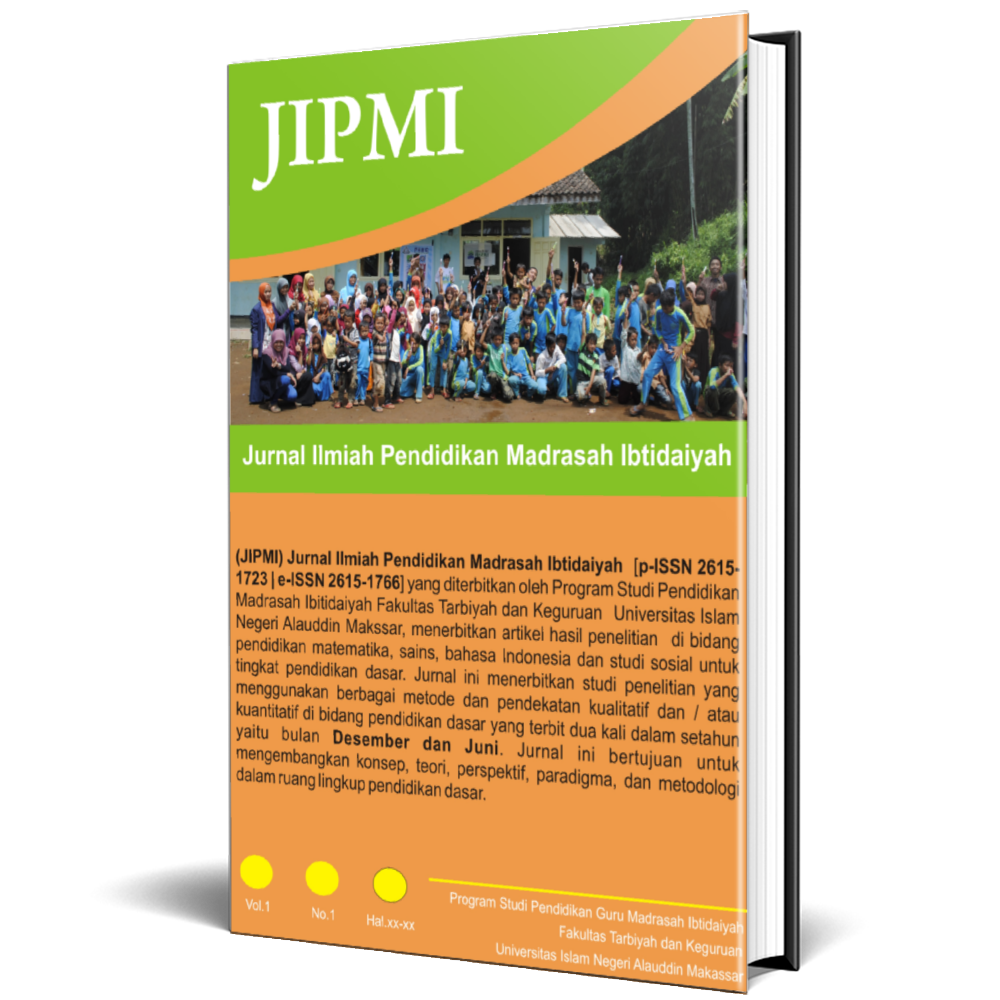PENGARUH PENERAPAN METODE PEMECAHAN MASALAH TERHADAP HASIL BELAJAR SISWA PADA MATA PELAJARAN PKN KELAS V YAYASAN PENDIDIKAN SUNGGUMINASA MI MANGGARUPPI KABUPATEN GOWA
Isi Artikel Utama
Abstrak
This research is a Quasi Experimental approach research with Non-Equivalent control Group Design which aims to determine student learning outcomes in Civics subjects before and after applying problem solving methods in class V YPS MI Manggaruppi Gowa Regency and to find out how much influence the application of problem solving methods has. on the learning outcomes of the fifth grade students of YPS MI Manggaruppi Kanupaten Gowa. The population of this study were all fifth grade students at the Private Education Foundation of MI Manggaruppi, Gowa Regency, which consisted of 2 classes with 29 students each. The sample used in this study were 2 classes, namely as a control class and as an experimental class. The sampling technique used was saturated sampling. Collecting data using learning outcomes tests, observation sheets and documentation. The data analysis technique used is descriptive statistical analysis and inferential statistical analysis with the help of the SPSS version 22 application. The results of this study indicate that there is a significant effect between classes using problem solving methods and conventional methods commonly used by teachers at MI Manggaruppi, Gowa Regency. With the results of the experimental class pree-test an average of 40.69 while the control class pree-test with an average value of 44.66. The post-test experimental class with an average value of 76.03 while the control class 51.03 with a percentage increase of 86.8%. The implication of this research is for teachers that this research is an effort to improve student learning outcomes.

